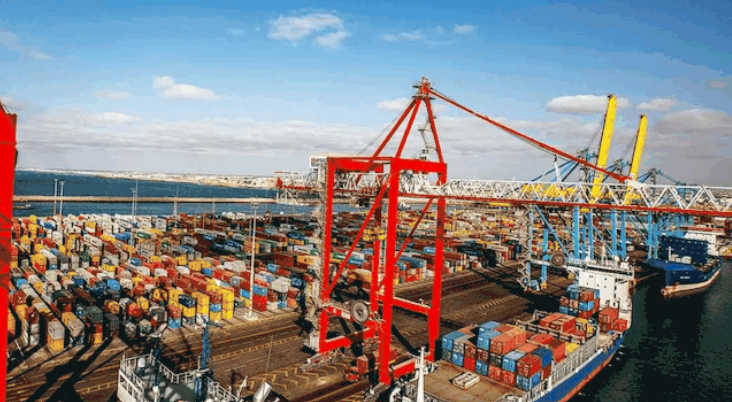Despite its 30,725 km of coastline, Africa struggles to optimize its maritime network. According to a new report from the Economic Commission for Africa (ECA), the continent’s ports lag significantly behind global standards.
Africa’s maritime network, which includes 30,725 km of coastline as well as numerous rivers and lakes, handles 22.1% of intra-African goods transport, notes the latest edition of the State of Regional Integration in Africa, published by the ECA, the African Union Commission, and the African Development Bank (AfDB).
The African maritime network comprises 142 shipping routes connecting 65 ports, according to the report, which highlights that many of these ports “face efficiency challenges, as they are significantly smaller and slower than comparable ports elsewhere in the world.” On average, goods remain idle for more than two weeks, whereas they wait less than a week in Asia, Europe, and Latin America.
The study also notes that handling costs at African ports are about 50% higher than in other regions. “This inefficiency is reflected in the average arrival time: 27.8 hours in Africa, compared to 7.6 hours in North America and 10.9 hours globally,” the report states.
Nevertheless, with the increase in global maritime trade, the development of maritime infrastructure has gained renewed interest in recent years, leading to a significant reduction in arrival times at ports in the African region—by eight hours between 2021 and 2022, driven by substantial reductions at ports such as Monrovia, Liberia (-87%), Lagos, Nigeria (-72%), and Tema, Ghana (-69.3%), according to the report.
These improvements are promising, as forecasts indicate that, with the implementation of the African Continental Free Trade Area (AfCFTA) and the enhancement of key port networks, annual maritime freight demand could increase from 58 million tonnes currently to 132 million tonnes by 2030, the same source concludes.




